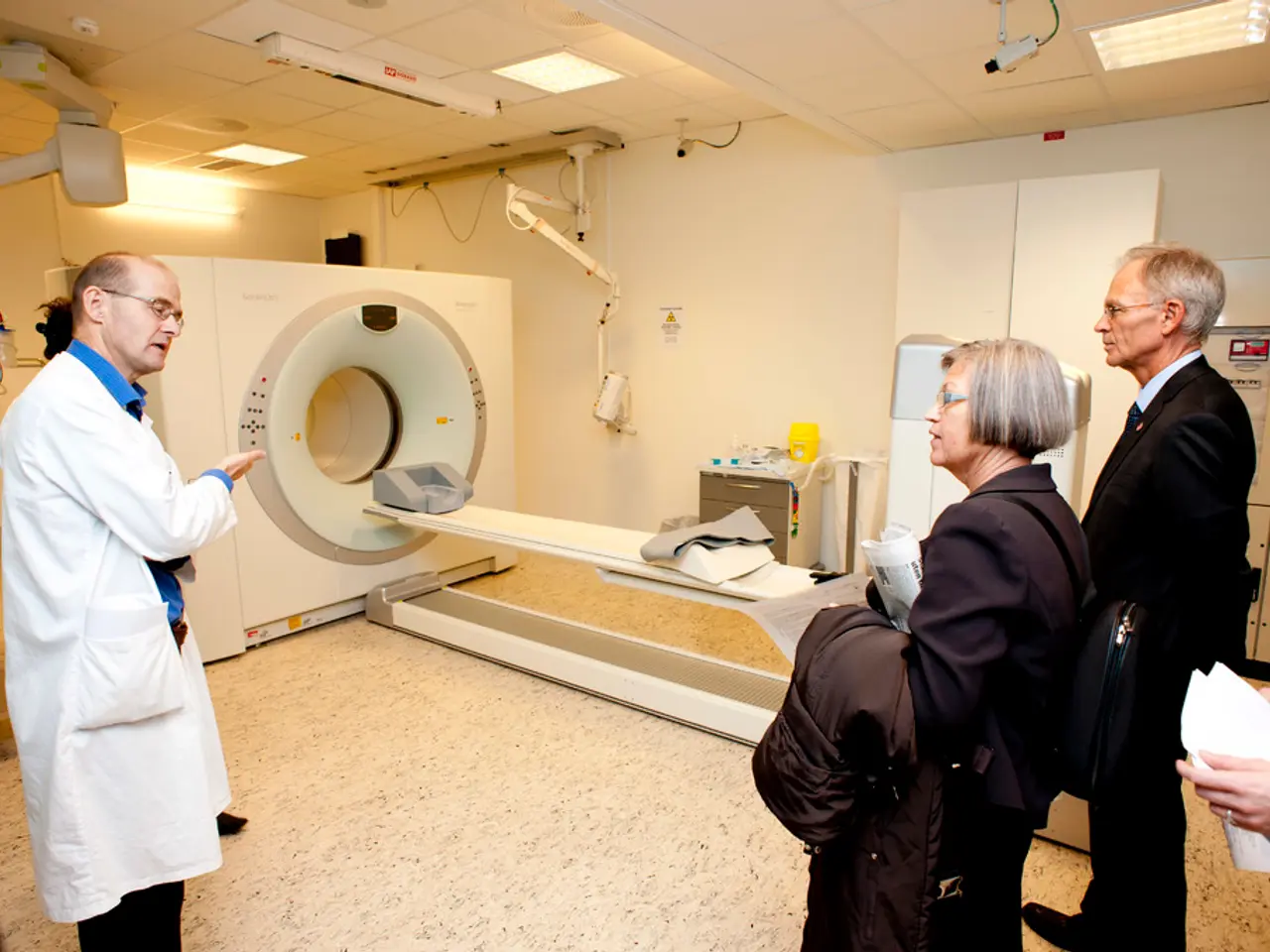Health authorities make a new record by deploying 6,484 medical interns to hospitals.
In a significant development for Kenya's healthcare sector, the Ministry of Health has deployed 6,484 health interns for a year-long supervised clinical training in accredited hospitals. This deployment, hailed as the largest in Kenya's history, marks a crucial step towards strengthening the workforce under Universal Health Coverage (UHC).
However, the current dispute over intern doctor remuneration remains unresolved. The key parties involved include the Ministry of Health, the Salaries and Remuneration Commission (SRC), Kenya Medical Practitioners, Pharmacists and Dentists Union (KMPDU), the National Treasury, Council of Governors, and President William Ruto.
The KMPDU insists that the 2017 Collective Bargaining Agreement (CBA) must remain in force, with interns receiving a monthly stipend of Sh206,000. This is the amount currently being paid to interns who are nearing the end of their terms in July 2025. The SRC, on the other hand, has proposed a lower figure of Sh70,000 for new interns, citing fiscal constraints and the need for sustainability.
Health Cabinet Secretary Aden Duale acknowledged the ongoing discussions and stated that the government is consulting with President Ruto, the National Treasury, and the Council of Governors (CoG) to ensure sustainable solutions for intern remuneration. Duale also commended the KMPDU for their role in the deployment and for keeping their word, honoring the agreements of April 10, 2025.
The KMPDU praised President Ruto for creating the positions that made this deployment possible. They also commended Duale for keeping his word and honoring the agreements of April 10, 2025. The union reaffirmed its position that the 2017 CBA must continue to guide intern pay, even as the interns begin their placements.
The government has increased its budgetary allocation for medical interns in the 2025/26 fiscal year, signaling continued support despite the pay disagreement. The Health Cabinet Secretary described the posting as a significant milestone for the country's healthcare system, while the KMPDU described it as a victory for patients and interns alike.
Eligible pre-interns are urged to collect their posting letters to ease timely deployment. The internship deployment is part of the Ministry of Health's efforts to strengthen the workforce under UHC, with the goal of providing quality and accessible healthcare services to all Kenyans.
The government is seeking to reach a consensus to maintain stability in the healthcare sector. The discussions regarding intern remuneration are part of the ongoing efforts to ensure a sustainable and efficient workforce under UHC, with the welfare of both the interns and the patients at the forefront.
- This development in Kenya's healthcare sector could potentially improve various aspects of health, ranging from chronic diseases to eye health and skin care.
- Strengthening the workforce, as part of Universal Health Coverage (UHC), could lead to advancements in areas like cardiovascular health, respiratory conditions, and digestive health.
- The intern deployment could significantly impact mental health, men's health, and women's health, contributing to overall health and wellness.
- In the workplace, there could be an emphasis on workplace-wellness programs, promoting fitness and exercise, and nutrition to support the new workforce's well-being.
- As the interns commence their placements, they might encounter medical conditions requiring specialized therapies and treatments, such as autoimmune disorders and neurological disorders.
- The interns might also be dealing with sleep disorders or other health issues related to aging, which should be addressed for optimal productivity.
- Parenting, a crucial aspect of life, could be influenced positively as these healthcare professionals learn and apply their skills, ensuring the health of children and pregnant women.
- Weight management could become a focus area, considering its importance in preventing and managing various health issues, including cardiovascular health.
- In addition to medical conditions, the interns might come across cases of skin conditions affecting eye health and hearing.
- In the quest for sustainable solutions for intern remuneration, it's essential to consider the long-term impact on the healthcare sector, such as attracting and retaining talent in the face of rising medical costs and expenses related to medicare.
- CBD, a compound regaining attention for its potential health benefits, could potentially be used in the treatment of some health conditions, subject to scientific research and approval.
- As the interns gain experience, they could become advocates for preventive measures like regular check-ups, early detection, and management of health conditions, improving overall health outcomes.
- The intern deployment could also foster greater collaboration between healthcare professionals, leading to advancements in areas like therapies and treatments, nutrition, and fitness and exercise.
- The ongoing discussions aim to strike a balance between economic considerations and the welfare of the interns, ensuring a stable and efficient healthcare sector that prioritizes the well-being of both the workforce and patients.
- Ultimately, the success of this intern deployment lies in the ability to provide quality and accessible healthcare services to all Kenyans, improving their overall health and contributing to a healthier, happier nation.







